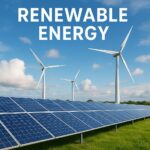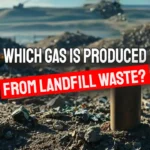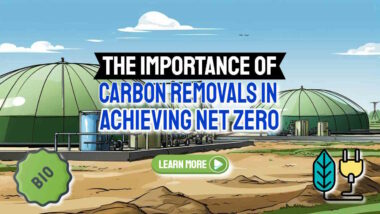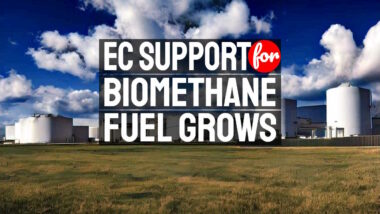The United States is failing to uphold its commitment to reducing methane emissions from landfills, a promise it made at the Glasgow 2022 Climate Change Conference, according to a new study. The United Nations Framework Convention on Climate Change (UNFCCC) has identified this issue as an easily achievable solution for mitigating climate change within the coming decade.
The Environmental Integrity Project
The Environmental Integrity Project, a Washington-based environmental organization, recently released a report highlighting that the U.S. Environmental Protection Agency (EPA) needs to improve its regulations to curb methane emissions more effectively.
Increased implementation of gas-collection systems, meticulous monitoring, accurate emission reporting, and a greater emphasis on composting recycling, and waste reduction could contribute to this objective.
Urgent Call for Stricter Landfill Regulations to Mitigate Methane Emissions
Landfills and Methane Emissions: A Problematic Equation
Municipal landfills, receiving domestic waste, are responsible for 14% of all methane emissions in the country, as per the EPA’s annual greenhouse gas report.
Methane is a potent greenhouse gas, around 80 times more damaging than carbon dioxide in the short term.
Moreover, its relatively brief presence in the atmosphere—just over a decade compared to carbon dioxide's centuries-long stay—means substantial methane reduction could quickly impact climate change efforts for the better if action is taken now.
The Scale of Methane Emissions in 2021
In 2021 alone, U.S. municipal waste landfills released 3.7 million metric tons of methane, equivalent to the annual emissions from 66 million gasoline cars or 79 coal-fired power plants.
This revelation highlights the urgency to act on landfill emissions. Leah Kelly, a report author and attorney with the Environmental Integrity Project, stressed that the EPA needs to modernize its emissions standards.
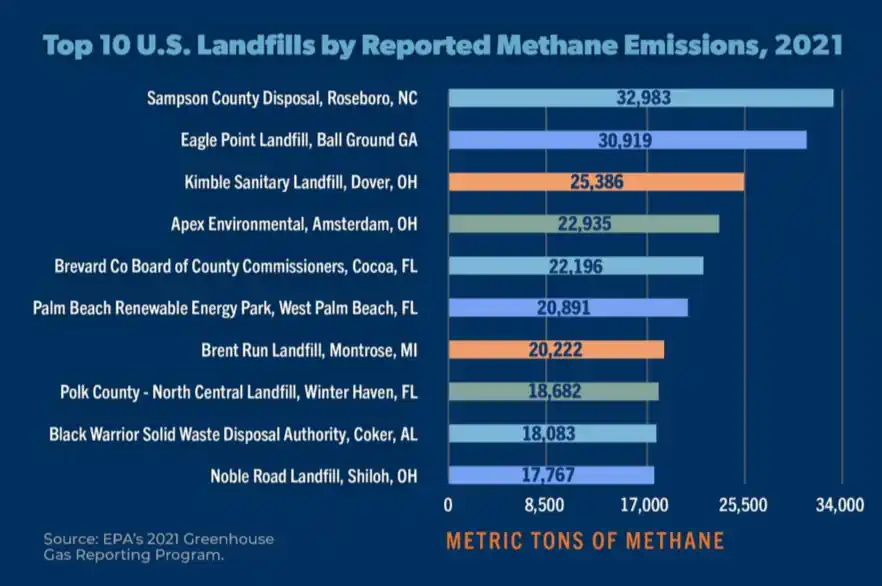
State-Led Initiatives: A Step in the Right Direction
Interestingly, some states such as California and Oregon are leading the way by requiring more landfills to install gas-collection systems compared to federal standards.
This approach has resulted in California having the highest proportion of landfills with gas-collection systems and the lowest rate of landfill methane emissions among the top 10 states with the highest emissions.
Potential Underestimation of Emissions by EPA
Current estimation methods used by the EPA might significantly underestimate these emissions, according to the report.
This mirrors a 2018 National Academy of Sciences report which expressed “low confidence” in the EPA's estimations and labelled their method “outdated” and “never field-validated”.
Legal Action to Update Estimation Methods
Last year, the Environmental Integrity Project, the Chesapeake Climate Action Network, and the Sierra Club filed a lawsuit against Michael Regan, U.S. Environmental Protection Agency Administrator, accusing him of failing to update the EPA's methods for estimating landfill emissions as per legal requirements.
The EPA hasn't updated its methods since 1998, despite evidence since 2008 suggesting the methods were underestimating emissions.
Social Implications of Landfill Locations
In addition to these concerns, the report also found over half of U.S. landfills are located in communities with a higher-than-average percentage of people of colour or low-income individuals.
The report cited multiple instances where these communities were disproportionately affected by nearby landfill operations.
Need for More Rigorous Gas Collection Systems
The report also highlighted the need for more rigorous gas collection systems, as seen in states like California.
Enhanced composting or other waste-reduction methods could also help minimize the amount of food waste heading to landfills.
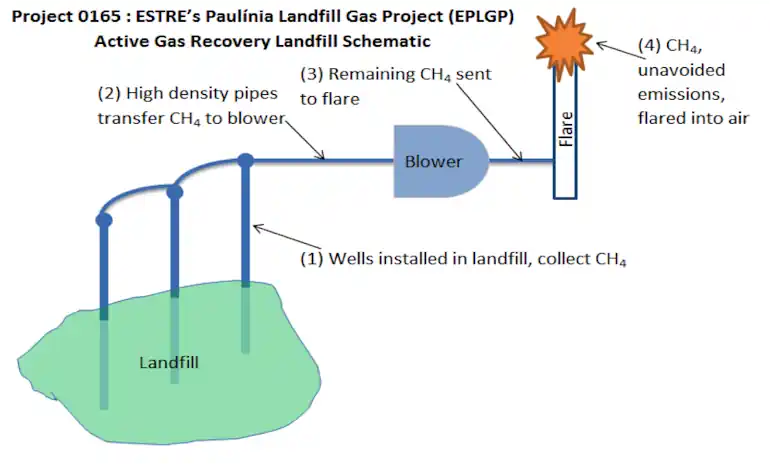
A National Call for Stricter Rules
In light of these findings, the report underlines the urgent need for the EPA to emulate the more effective state-led initiatives and introduce stricter rules on a national level.
State-Level Challenges and Initiatives: Florida, Texas, and Ohio
States With High Methane Emissions
Continuing from the last report states like Florida and Texas have the most room for improvement.
Florida has three landfills in the top 10 methane emitters: Brevard County, West Palm Beach, and Polk County. The state's total emissions come in third behind Texas and California, despite being the third-most populous state. Ohio, on the other hand, has two landfills in the top 10 and ranks fifth in total emissions, behind Georgia.
The Climate Challenge in Florida
One of the significant contributors to Florida's emission problem is its subtropical climate, which promotes more decomposition and, consequently, more methane production at its landfills. Jeff Chanton, a professor at Florida State University's Department of Earth, Ocean and Atmospheric Science, highlighted the challenges of the state's climate, as the abundance of water can interfere with gas collection systems.
“If we can regulate the CO2 from power plants, why don't we regulate methane as a greenhouse gas,” Chanton suggested.
Mitigation Efforts in Florida
However, some efforts are being made in the state. At the West Palm Beach landfill, methane emissions are captured and used to power a facility that treats sludge from nearby wastewater treatment plants. Similar methane capture and utilization initiatives are also being explored in Brevard County. Despite these initiatives, the costs associated with maintaining such systems remain a concern.
Call for Nationwide Adoption of Stricter Regulations
This situation underlines the call made by Leah Kelly of the Environmental Integrity Project, stating that it's time for the EPA to emulate states like California that have successfully enforced stricter regulations.
They have not only required more landfills to install comprehensive gas collection systems but also minimized the amount of food waste going to landfills through composting or other measures.
Conclusion: A Need for Proactive Efforts in Methane Emissions Mitigation
Centralizing Efforts to Decrease Methane Emissions
Continuing from where we left off, it's important to note that while local efforts to manage and mitigate methane emissions from landfills are essential, a more centralized approach is necessary to significantly decrease these emissions across the country.
The report highlighted that, as a nation, the United States is lagging in terms of effectively managing landfill methane emissions, pointing to a potential failure in living up to the promise made at the Glasgow 2022 Climate Change Conference.
Improving Regulations and Accountability
The current regulations from the EPA, although existent, are inadequate and outdated. As the report noted, it's not only about implementing more gas-collection systems at landfills but also about accurately monitoring and reporting emissions.
It's clear that there is a need for a substantial overhaul of the system to ensure proper accountability and action.
The Potential Scale of the Problem
An interesting aspect of the report pertains to the potential underestimation of emissions by the EPA's current methods. This issue was underscored by a 2018 report from the National Academy of Sciences, which expressed low confidence in EPA estimates and criticized the agency's methodology. If these critiques hold true, the problem could be much worse than currently acknowledged, making immediate action even more necessary.
Marginalized Communities and Landfill Impacts
Another concern raised by the report is the disproportionately high number of landfills located within marginalized communities.
For example, Uniontown, Alabama, a predominantly Black and low-income community, has been negatively impacted by a landfill receiving most of its waste from out of state. The report underscored similar issues in Maryland and North Carolina.
The Need for Environmental Justice
Addressing this matter requires not only an environmental approach but also a social justice lens. For too long, marginalized communities have been unfairly burdened with the negative impacts of environmental negligence. Ensuring that future policies consider the social implications of their enforcement is crucial.
The Final Word: A Call for Urgent and Comprehensive Action
In conclusion, while some states have taken positive steps towards managing their methane emissions, the report sends a clear message: the United States, as a whole, is falling short of its commitments made to the low-hanging fruit of methane emissions reduction from landfill at the Glasgow 2022 Climate Change Conference.
As such, urgent, comprehensive, and socially responsible action is necessary to ensure that the US upholds its promise to the global community. Now more than ever, the call for the EPA to update and enforce stronger regulations is not just a suggestion, but a necessity.
The Future of Sustainable Bio-based Materials and Products
Bio-based materials are products and materials made from renewable biological resources like plants, animals, and microorganisms. They are a sustainable alternative to traditional fossil-fuel-based products, offering advantages such as a smaller carbon footprint and reduced reliance on finite resources. Common examples include timber, hemp, and bio-based plastics like polylactic acid (PLA), and they are used […]
A Success Story: LFG-to-Energy Conversion Units Transforming Landfill Gas in California
California's landfill gas-to-energy conversion units are redefining waste management by transforming captured methane into electricity, renewable natural gas for vehicles, and liquefied natural gas. These advancements mark a significant step towards sustainability, reducing carbon footprints and turning waste into a valuable, clean energy resource…
Best Low Carbon Farming Practices & Techniques
Farmers are turning to low carbon techniques like no-till farming and precision agriculture to combat climate change. These practices not only reduce emissions but also improve soil health and farm profitability, offering a resilient future for agriculture as weather patterns grow increasingly unpredictable…
Which Gas is Produced from Landfill Waste: The Gas that Trash Produces…
Discover which gas is produced from landfill waste and understand its environmental impact and potential energy use. Explore landfill gas management.



